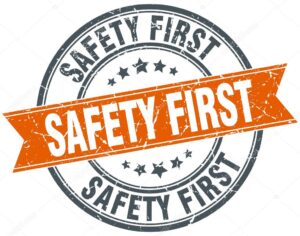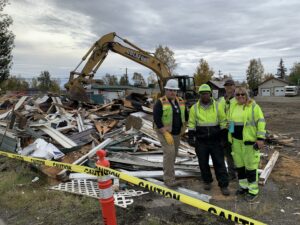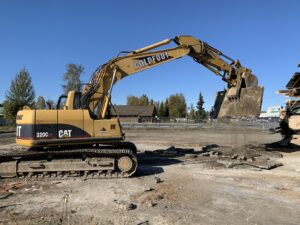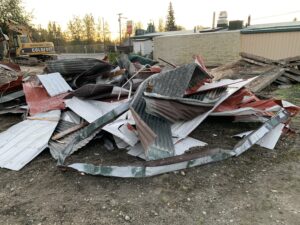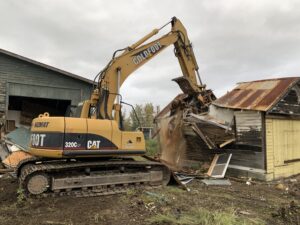Monthly Memos 2020
A project owner cannot “contract away” their responsibility or liability. They must identify its nature to the demolition contractor: pay for the removal of waste, and insure that it is disposed of properly. It will be the owner, as well as the contractor, who will face fines and legal sanctions if these strict waste regulations…
Read MoreIn the hands of professionals, the danger is controlled. While the demolition process has the potential to create an unsafe work environment, the professional demolition contractor has designed programs to prevent accidents for both on and off-site activities. Many demolition contractors employ in-house safety directors to prepare written standards, conduct safety meetings, develop incentives for…
Read MoreCommercial demolition work generally costs less than 2 percent of the replacement cost of the building. The ramifications of not dealing with a reputable, trained demolition contractor can be financially devastating. This is not the type of work where one gets a second chance. It’s important to look for experienced people who have the sophisticated…
Read MoreDon’t tell that to the owner who has had the misfortune of dealing with an inexperienced contractor: a general contractor is often not qualified to demolish buildings or structures. Not unlike doctors, demolition contractors acquire their specialty only after making a substantial investment in their training equipment. Investigate all of the contractors before accepting the…
Read MoreDemolition practices today are not only quicker, but also safer and more cost-effective. During the past two decades, environmental and safety regulations, as well as growing technology, have impacted the dynamics of the industry. The basic tools of a demolition contractor were once usually a crane, wrecking ball, and front-end loader. Today’s standard equipment has…
Read MoreA safe and successful demolition project requires a working knowledge of both construction and the law. Decisions involving mechanical and electrical systems, engineering as well as environmental regulations, must be constantly addressed. Trained professionals are required to identify, remove, and dispose of any and all hazardous, toxic, or regulated materials. Too often owners have had…
Read MoreThe industry is reducing its use of landfills in favor of recycling. In just the past decade, landfill costs have soared from $40 a truckload to as high as $800 in some areas. In addition, pressures from regulators have decreased the number of landfills open for business and caused others to strictly limit what they…
Read MoreCommon Misconception #03: Demolition Contractors don’t Participate in the Nation’s Recycling Effort.
The demolition industry was salvaging building elements and materials for reuse log before it was the “ecological thing to do.” Recycling is a major part of the demolition contractor’s business; it represents 20-50 percent of some companies’ revenues. With current technology, contractors are able to separate demolition debris; these processes maximize the use of reusable…
Read MoreDemolition contractors are instrumental in achieving the goals of preservationists. The façade and many important architectural details are preserved in a building when its interior is gutted and renovated to incorporate modern conveniences and energy efficient equipment. Communities are improved aesthetically when demolition contractors remove deteriorated roads and bridges and unstable structures that were damaged…
Read MoreImplosions account for less than 1 percent of all demolition work. Even though our industry is currently estimated to be a 3.5+ billion dollar business, the spectacular sight of a building collapsing in a matter of seconds always garners mass media attention. The fact is, more than 99 percent of demolition work is handled with…
Read More
